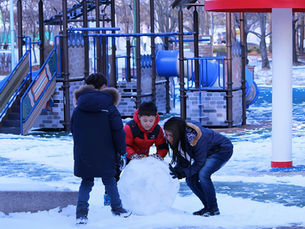top of page


How School Helps Shape Kids’ Brains: What New Research Says About Schooling and Executive Function
As parents, we intuitively know that school teaches children how to read, write, and solve math problems. But did you know that going to school may also help their brains develop in fundamental ways that go beyond academics? Recent research suggests that the structured environment of formal schooling actually boosts cognitive skills—collectively called executive functions—in ways that go beyond just getting older.
Monarch
1 day ago6 min read


Processing Speed, Working Memory, and Attention: How These Skills Differ, How They Overlap, and Why the Distinction Matters for Your Child
When children struggle with learning, routines, or follow-through, adults are often given a cluster of terms: attention, working memory, processing speed, or an overlap. These terms are frequently used interchangeably, even though they refer to different brain-based functions. For parents, this can feel confusing and overwhelming. If everything looks the same on the surface—unfinished work, missed instructions, slow output—how are you supposed to know what is actually going o
Monarch
3 days ago6 min read


Processing Speed: What It Is, What It Looks Like When It’s Hard, and How to Support Your Child Without Pressure
Processing speed is one of the most misunderstood cognitive skills. It is frequently confused with intelligence, motivation, attention, or even working memory. In reality, processing speed is about how efficiently the brain takes in information, makes sense of it, and produces a response.
Monarch
Feb 127 min read


How to Support Working Memory at Home During the Winter Months
Winter is a unique season for families. The colder temperatures, shorter days, disrupted routines, and long stretches indoors all shape the rhythms of daily life. For many neurodiverse children—those with ADHD, autism, learning differences, language delays, sensory processing needs, or executive functioning challenges—winter brings both new opportunities and new obstacles. One area where this shift is especially noticeable is working memory.
Monarch
Feb 107 min read


Working Memory: What It Is, What It Looks Like When It’s Hard, and How to Support Your Child Gently and Effectively
If you have ever watched your child forget instructions moments after hearing them, lose track of what they were doing mid-task, or struggle to hold information in mind long enough to use it, you may have been told, “It’s a working memory issue.” For many parents, that phrase can feel vague, confusing, or even alarming. What exactly is working memory?
Monarch
Feb 57 min read


The Link Between Your Inner Voice and Your Heart Rate
A new study from Aarhus University in Denmark led by Mikkel Wallentin looked at the connection between our inner speech (that silent voice in our head) and a fairly concrete physiological marker: heart rate.
Monarch
Feb 35 min read


Supporting Kids With Big Feelings About Rejection or Exclusion
Rejection and exclusion are among the most painful social experiences for children—and for parents, witnessing that pain can feel unbearable. Whether it shows up as tears after school, anger at home, school refusal, or quiet withdrawal, rejection can activate intense emotional responses that seem to come out of nowhere and linger far longer than adults expect.
Monarch
Jan 296 min read


Friendship Differences: Supporting Kids Who Connect Differently
Friendship is one of the most emotionally charged topics in parenting. Many parents carry vivid memories of their own childhood friendships—the joy of belonging, the pain of exclusion, the confusion of social missteps. When our children’s social experiences look different from what we expected or remember, it can trigger worry, grief, or a strong urge to “fix” things quickly.
Monarch
Jan 276 min read


Push vs. Pause: Decision-Making for Winter Activities with Neurodiverse Children
Winter can be a season of joy, adventure, and activity—but it can also present challenges for families of neurodiverse children. From snow-filled days to icy sidewalks, cold weather, and shortened daylight, parents often face a critical question: When should we encourage children to engage in winter activities, and when is it better to pause? For neurodiverse children, this push vs. pause decision can be even more nuanced.
Monarch
Jan 216 min read


Understanding Highly Sensitive Children: How to Support Kids Who Feel the World Deeply
Some children experience the world at a higher volume. Sounds feel louder, emotions feel stronger, changes feel bigger, and social experiences leave deeper imprints. These children are often described as “too sensitive,” “overreactive,” or “easily overwhelmed,” yet these labels miss what is really happening. Highly sensitive children are not broken, weak, or immature. They are wired to process information deeply and respond intensely.
Monarch
Jan 195 min read


When Emotional Struggles Signal the Need for Further Support: A Guide for Parents
All children struggle emotionally at times. Big feelings, emotional outbursts, moodiness, worry, and withdrawal are part of growing up in a complex world. For parents, one of the hardest questions is not whether children will struggle emotionally, but when those struggles signal the need for additional support beyond what families can provide on their own.
Monarch
Jan 156 min read


When School Refusal Increases After Breaks: What Parents Should Know
For many parents, returning from a break—whether it’s summer vacation, winter holidays, or even a long weekend—can be unexpectedly challenging. Children who were previously attending school without major difficulty suddenly resist getting out of bed, avoiding classrooms, or complaining of stomachaches, headaches, or fatigue. In reality, increased school refusal after breaks is a common experience for children of all ages and can have many underlying causes.
Monarch
Jan 136 min read


Depression Signs by Age Chart
Depression can be difficult for parents to identify, especially when symptoms can mirror other changes. This table can be used as a reference chart to help identify common emotional, behavioral, and physical signs of depression
Monarch
Jan 81 min read


Understanding Depression in Children and Adolescents: A Guide for Parents
Depression is often thought of as an adult mental health condition, but it can affect children and adolescents too. For parents, recognizing depression in their children can be challenging, especially because young people may express their emotions differently than adults. Understanding the signs, symptoms, risk factors, and ways to support a child struggling with depression is essential for early intervention and effective care.
Monarch
Jan 66 min read


Winter Blues or Something More? Understanding Seasonal Shifts
Winter can be a magical season: twinkling lights, cozy evenings, family traditions, and hot cocoa. But for many children—and especially neurodiverse children—this time of year can also bring emotional challenges. Shorter days, colder temperatures, and changes in routine can influence mood, energy, and overall well-being. For parents, it can be hard to distinguish between a normal “winter slump” and something more concerning winter blues.
Monarch
Jan 26 min read


Thank YOU!
As 2025 draws to a close, we wanted to pause and offer a simple but deeply felt message: thank you. Whether you’ve been following our blog from the very beginning or you just discovered us recently, we’re incredibly grateful you’re here.
Our mission has always been to create a space where parents and caregivers of neurodiverse children feel informed, supported, and seen. Parenting differently-wired kids brings profound joy, fierce advocacy, and—let’s be honest—plenty of comp
Monarch
Dec 31, 20253 min read


Snow Days and Unexpected Cancellations: How to Build Flexibility Into Routines for Neurodiverse Children
Winter brings many joys—snowy landscapes, cozy evenings, and festive activities—but it also brings unpredictability and opportunities for flexibility. Snow days, icy roads, school closures, and unexpected cancellations can disrupt even the most well-planned routines. For neurodiverse children, who often thrive on predictability and structure, these disruptions can be particularly challenging.
Monarch
Dec 22, 20256 min read


When the Holidays Are Hard: Supporting Yourself and Your Kids Through a Difficult Season
The holiday season is often portrayed as a time of joy, connection, and celebration. Commercials show glowing families around dinner tables, social media feeds filled with matching pajamas, and conversations at school or work often center on plans for travel and festivities. But for many families, the holidays are not only complicated—they can be painful.
Monarch
Dec 18, 20256 min read


Helping Kids With Organization When Winter Gear, Layers, and Holiday Gifts Add Chaos
Winter can be a magical season—snowflakes, cozy sweaters, hot cocoa, family gatherings, and holiday lights. But for many families, especially those raising neurodiverse children, it’s also a season of added chaos. Suddenly, there are boots, coats, hats, gloves, scarves, snow pants, extra socks, and jackets cluttering entryways. The laundry seems endless. School bags get lost under piles of holiday gifts.
Monarch
Dec 16, 20257 min read


The Boredom Toolkit: 15+ Ways to Spark Creativity, Exploration, and Independent Thinking
This boredom toolkit is designed to give parents ideas to support healthy, productive boredom. The key is not to prescribe exactly what the child must do, but to provide options and materials that encourage exploration, creativity, and problem-solving.
Monarch
Dec 11, 20253 min read
ALL ARE WELCOME HERE
bottom of page
